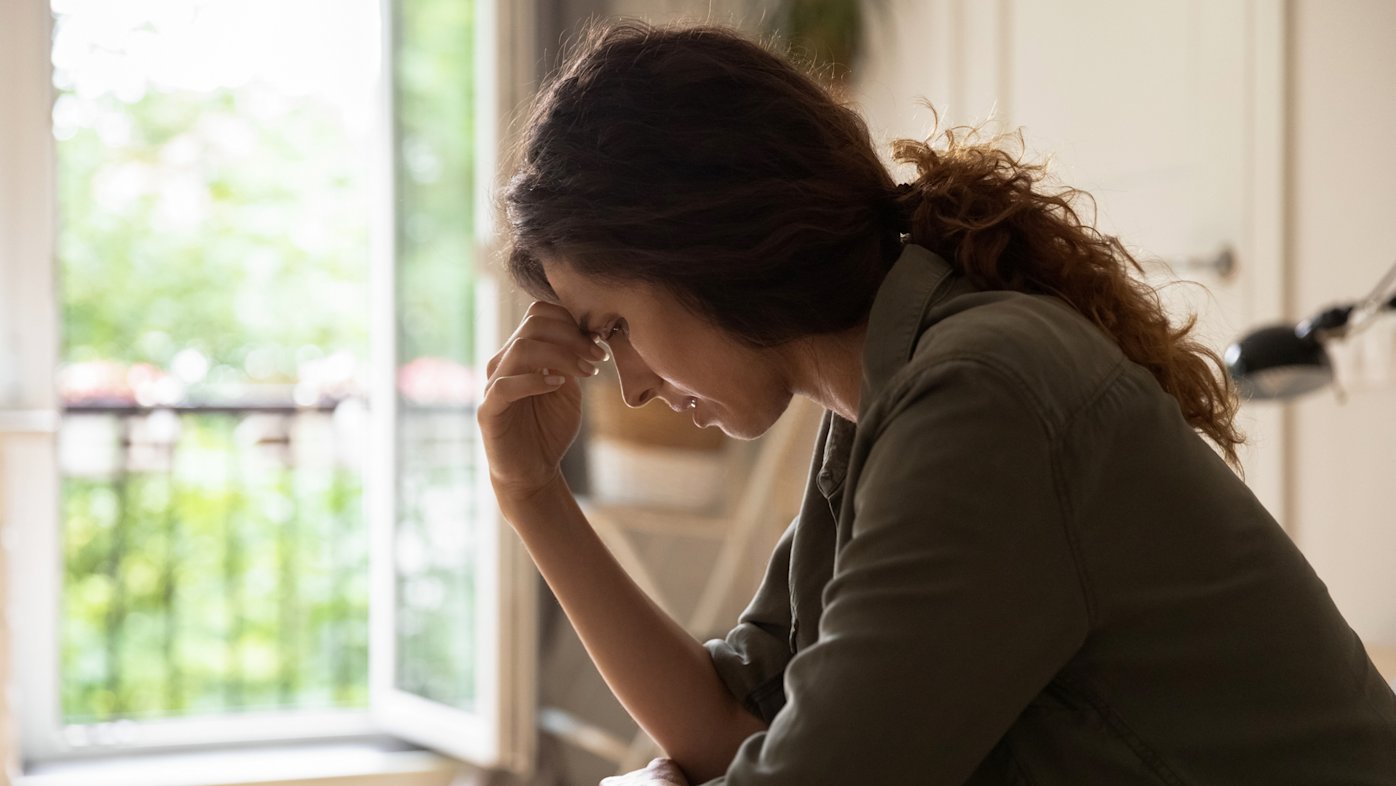Whether it’s during happy hour, brunch or a tailgate party, drinking often takes place in everyday life. More than 60 percent of adults in the United States say they currently drink, while nearly 20 percent of American adults admit to sometimes overindulging.
But what happens to our body when we stop drinking? Serene Carruthers, LMFT, manager of Sharp McDonald Center, explains how reducing alcohol intake can help our body in six ways.
1
Skin benefits
Alcohol is a diuretic, meaning it makes you urinate more. The body then loses essential fluids and electrolytes and can become dehydrated. “Stopping drinking can help prevent dry skin and dark circles while improving skin elasticity,” says Carruthers.
2
Better sleep
Alcohol can cause sleepiness at first, but this goes away after a few hours due to alcohol’s effect on the brain’s neurotransmitters that regulate sleep.
“Good sleep means remaining asleep throughout the night,” says Carruthers. “But alcohol can disturb our sleep, making us wake up often in the middle of the night, resulting in poor-quality sleep.”
3
Weight loss
Carruthers says many alcoholic drinks are made up of empty calories. “A bottle of beer can have about 150 calories, while other drinks have high sugar content, such as a margarita with about 200 calories,” she says.
Drinking can also cause cravings for greasy and salty foods, leading people to make unhealthy choices.
4
Clarity in thinking
Alcohol is a depressant, meaning it slows down the body’s central nervous system.
“In high amounts, a depressant can affect our memory, ability to make sound judgment, and our bodily coordination,” says Carruthers. “When we drink a lot, it can cause us to make more mistakes and accidents. When we stop drinking, we can think more clearly.”
5
Improved mood
While alcohol can initially help us feel better, the aftermath of drinking brings more negative emotions. Carruthers explains that drinking temporarily depresses the amygdala, which is the part of the brain that controls the fight-or-flight response.
“However, afterward, the adrenal glands release the stress hormone cortisol, and blood pressure increases. Over an extended period, this can lead to anxiety or depression,” she says. “When we stop drinking, cortisol levels can be more regulated, which can help stabilize mood.”
6
Reduced cancer risk
Alcohol has been linked to many types of cancer, including breast, mouth, colon and liver cancer. The type of drink – whether it’s beer, wine or a cocktail – does not matter, as the alcohol itself increases cancer risk.
The more alcohol is consumed, the higher the risk of developing cancer becomes. For breast cancer, any amount of alcohol increases the risk. Alcohol increases cancer risk by damaging the DNA in our cells and may hinder our body’s ability to take in nutrients.
For people who regularly drink excessively or have alcohol use disorder – what’s commonly referred to as alcoholism – Carruthers encourages receiving help from a medical professional or an addiction treatment center. “Suddenly stopping drinking can cause life-threatening withdrawal symptoms like delirium tremens (DTs) or seizure,” she says.
Signs of delirium tremens include:
Whether people would like to reduce their alcohol intake or stop drinking altogether, Carruthers encourages them to be patient with themselves through the process.
“It can take time and various attempts for us to form a new healthy habit,” she says.
Learn more about substance use treatment at Sharp McDonald Center; get the latest health and wellness news, trends and patient stories from Sharp Health News; and subscribe to our weekly newsletter by clicking the "Sign up" link below.
